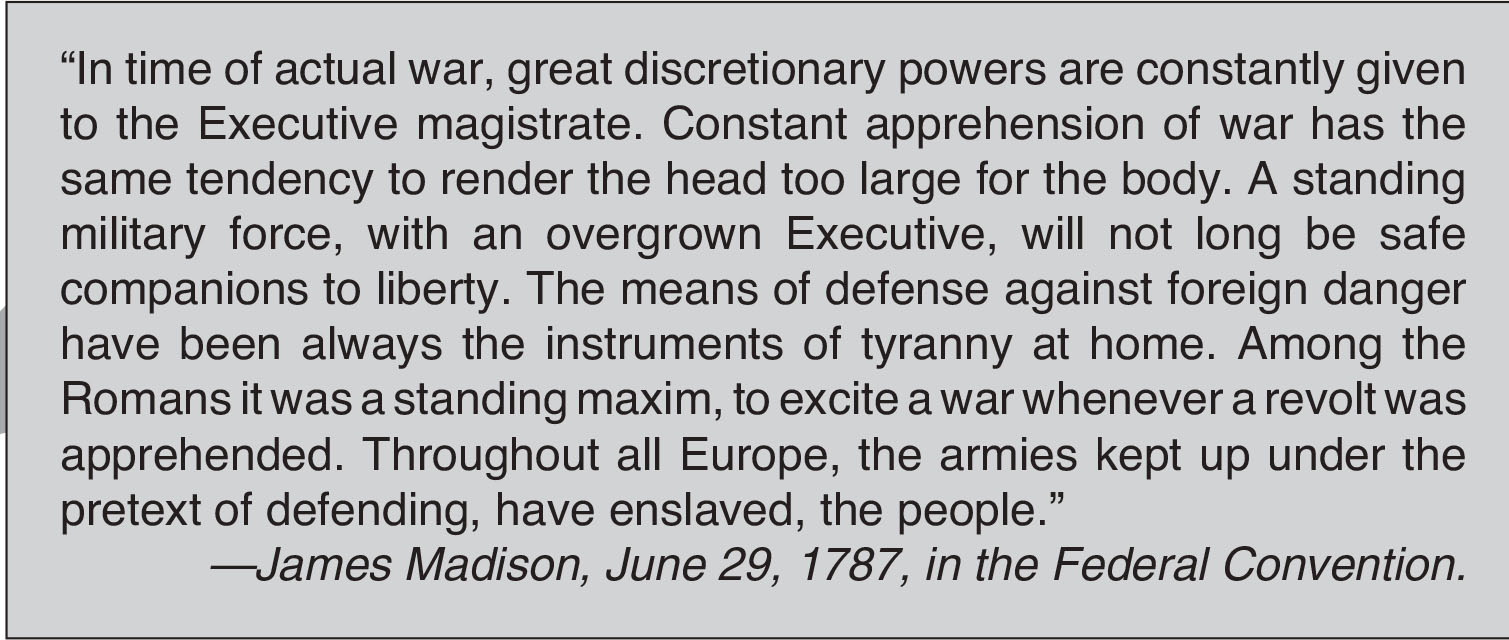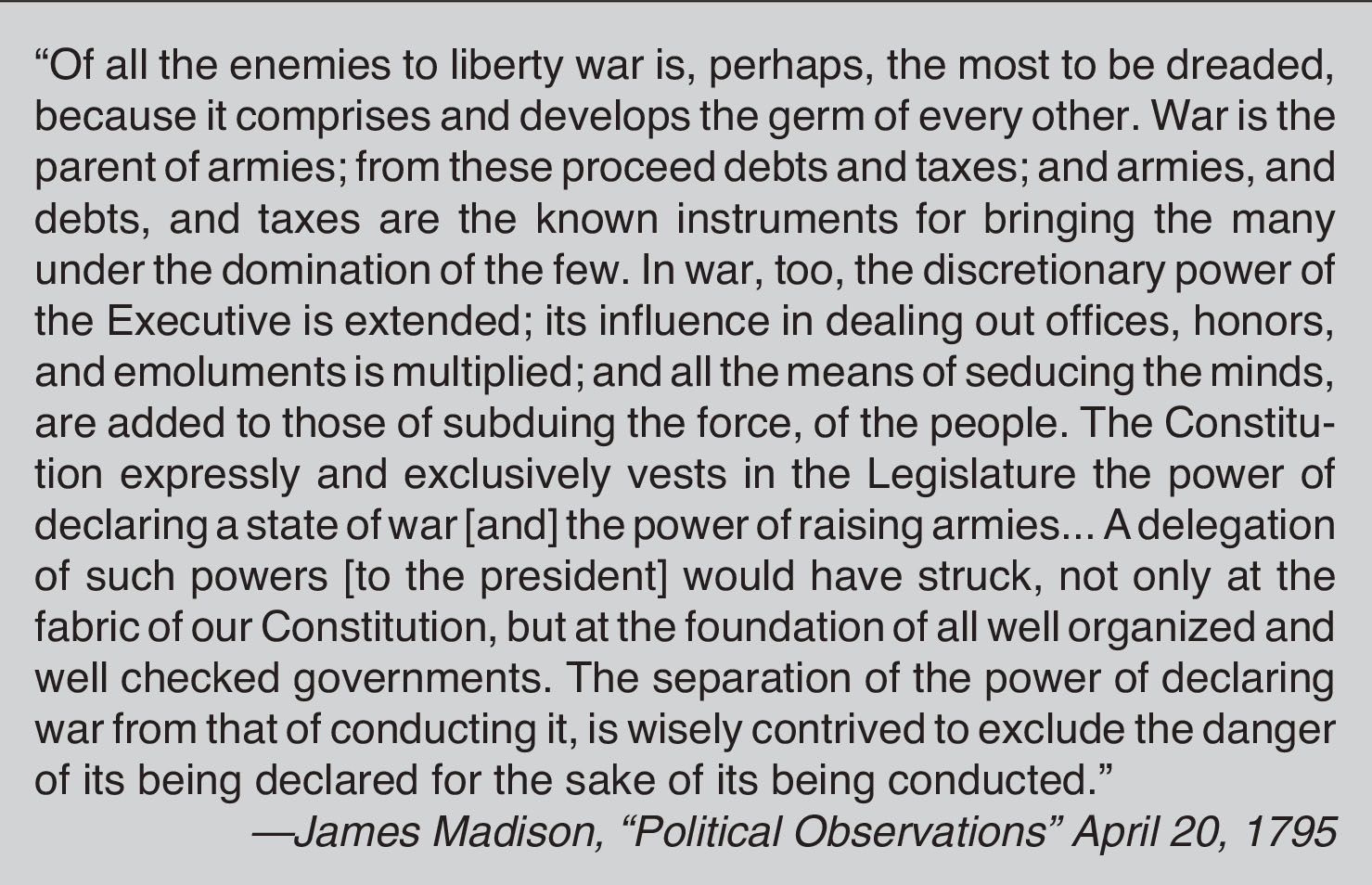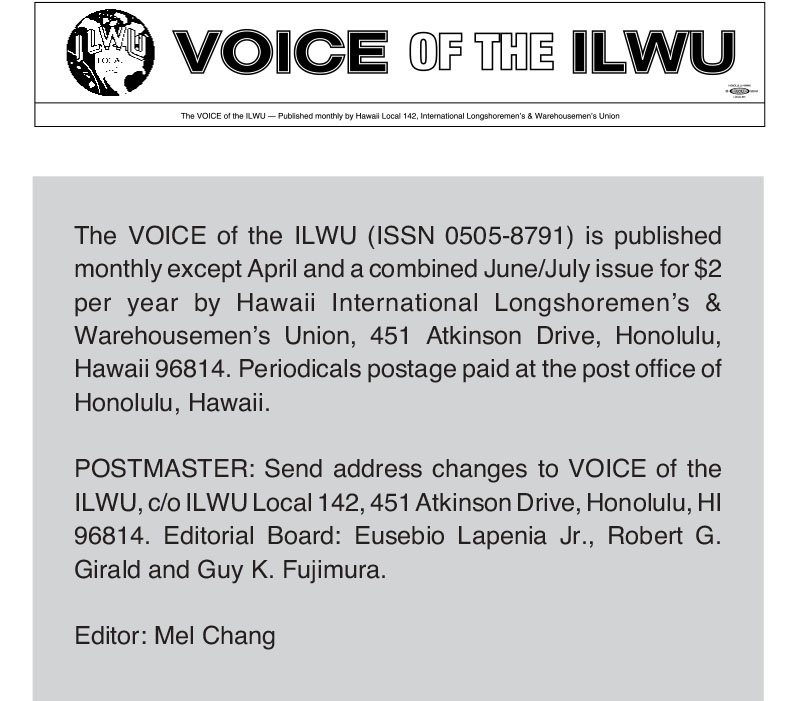“Of all the enemies to liberty war is, perhaps, the most to be dreaded...”
These are the words of James Madison, who is often called the “Father of the Constitution” because many of his views about
government became part of the U.S. Constitution. Madison also served as the 4th President of the U.S. from 1809 to 1817.
Based on his historical research, Madison proposed a framework for government that balanced the interests of individual citizens, the states, and the national government. His proposals included the separation of powers into three branches of
government and a system of checks and balances to prevent the abuse of power by any one branch, particularly by the presidency.
To limit the abuse of power
The earlier Americans had just fought a revolutionary war to free the colonies from the absolute and arbitrary power of King
George of England. The U.S. Constitution was carefully crafted to limit and prevent the abuse of power by an absolute ruler. In particular, they wanted to take the power to declare war away from the President—so it is only Congress that has the power to declare war. The President is given the power, as commander in chief, to conduct the war, after Congress declares war.
Using war for their own ends
Throughout history, Madison observed that rulers used war, the threat of war, and even the pretext of defending against war
to maintain a standing army and to concentrate power in the hands of the executive branch. [For the entire debates go to: http://www.constitution.org/dfc/dfc_0000.htm]
War, armies, debt and taxes
After the Constitution was adopted, Madison explained in more detail how war can be a threat to American democracy
and freedom. War leads to armies; armies lead to debt and taxes. The discretionary power of the president is extended, including the power to dole out rewards and favors and the power to seduce the minds of the public.


Preamble to the Charter of UN
The United Nations was created in an effort to put an end to war—particularly after the devastation and millions of dead from World War I and World War II.
We the Peoples of the United Nations Determined
to save succeeding generations from the scourge of war, which twice in our lifetime has brought untold sorrow to mankind, and
to reaffirm faith in fundamental human rights, in the dignity and worth of the human person, in the equal rights of men and women and of nations large and small, and
to establish conditions under which justice and respect for the obligations arising from treaties and other sources of international law can be maintained, and
to promote social progress and better standards of life in larger freedom,
And for these Ends
to practice tolerance and live together in peace with one another as good neighbors, and
to unite our strength to maintain international peace and security, and
to ensure by the acceptance of principles and the institution of methods, that armed force shall not be used, save in the common interest, and
to employ international machinery for the promotion of the economic and social advancement of all peoples,
Have Resolved to Combine ours Efforts to Accomplish these Aims
Accordingly, our respective Governments, through representatives assembled in the city of San Francisco, who have exhibited their full powers found to be in good and due form, have agreed to the present Charter of the United Nations and do hereby establish an international organization to be known as the United Nations.
Article 1 - The Purposes of the United Nations are:
- To maintain international peace and security, and to that end: to take effective collective measures for the prevention and removal of threats to the peace, and for the suppression of acts of aggression or other breaches of the peace, and to bring about by peaceful means, and in conformity with the principles of justice and international law, adjustment or settlement of international disputes or situations which might lead to a breach of the peace;
- To develop friendly relations among nations based on respect for the principle of equal rights and self-determination of peoples, and to take other appropriate measures to strengthen universal peace;
- To achieve international co-operation in solving international problems of an economic, social, cultural, or humanitarian character, and in promoting and encouraging respect for human rights and for fundamental freedoms for all without distinction as to race, sex, language, or religion; and
- To be a centre for harmonizing the actions of nations in the attainment of these common ends.
(signed on June 26, 1945)

